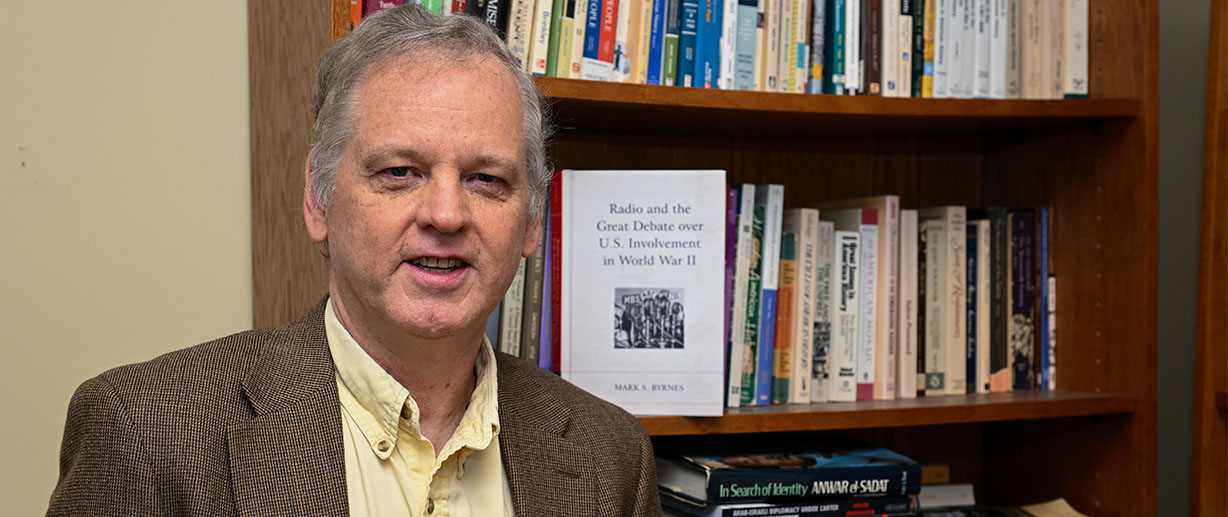When teaching courses on American diplomacy, Dr. Mark Byrnes likes to put his students in the positions of the people at the time. That means lots of research into the past. More than a decade ago, while preparing for a class, he came across a magazine with speeches leading up to the United States’ involvement in World War II and made a discovery that led him to write a book.
The magazine, Vital Speeches of the Day, published talks by anti-interventionists and interventionists, and Byrnes started to notice that each transcript cited the radio network that broadcasted the speech.
“It hit me that this debate was taking place on radio,” says Byrnes, professor of history and chair of the Wofford College history department. “It’s the first time you had a big foreign policy debate in America that everyone could hear.”
Byrnes’ book “Radio and the Great Debate over U.S. Involvement in World War II” was published by Rowman & Littlefield, and it’s finding its way to college libraries across the United States. The book looks at the relationship between U.S. foreign policy and radio and how that time period shaped media coverage of political discourse.
Byrnes says that 75% of America’s households had radios between 1939 and 1941 and there were four radio networks broadcasting across the country.
“You could hear a speech on the radio almost everywhere in the country,” Byrnes says. “You didn’t have to attend a rally. Just sit in your home and listen to the radio.”
Earlier books focused on the history of radio often argue that those opposed to getting involved in World War II did not receive a fair opportunity to be heard because of media bias.
In his book, Byrnes discusses how radio networks sought to give both sides equal airtime and how each side recognized the importance of being on the radio.
“Anti-interventionists lost the policy debate,” Byrnes says. “They blamed their defeat on radio as an industry, claiming a conspiracy existed between FDR (President Franklin D. Roosevelt) and radio to get the U.S. into the war.”
Byrnes’ research included review of National Broadcasting Company (NBC) documents archived at the University of Wisconsin-Madison, which has meeting minutes, memos and policy papers from the network. He says the National Association for Broadcasters feared that the federal government would seek to run radio stations or regulate the industry so much that it wouldn’t make profits.
“NBC was bending over backwards to be fair and aimed to give equal time to both sides because it was in their best interest,” Byrnes says.
People became fatigued from speeches and rebuttals and a different approach was needed.
“You started to see the beginning of what would become political advertising because people were getting bored with speeches,” Byrnes says.
The America First Campaign’s ads introduced the work of ad agencies to political debates and provided sophisticated work during radio’s early days while incorporating music and man-on-the-street interviews.
“Nothing like that had been done before,” Byrnes says. “It would get people’s attention. It led to a lot of things that have become typical in political advertising. This was an expensive and complicated proposition.”
In many ways, Byrnes says he found similarities between today’s debates about the role of cable news networks and social media platforms in political discussions.
“Radio is how you get your people worked up and mobilized, but it’s not getting new supporters,” Byrnes says. “They began to understand that 80 years ago. It’s not something we’re discovering now.”
